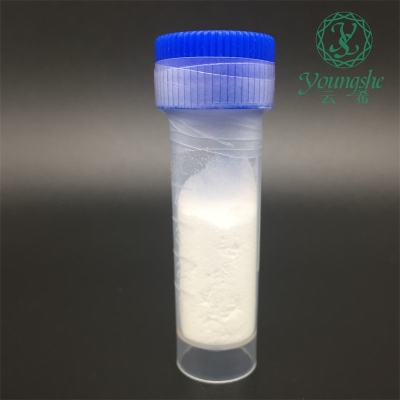Which type of milk is the best? Maybe it depends on your taste!
-
Last Update: 2017-12-26
-
Source: Internet
-
Author: User
Search more information of high quality chemicals, good prices and reliable suppliers, visit
www.echemi.com
In the 1970s and 1980s, there were many negative reports about milk For example, the milk intake of British people decreased significantly, from 2700 ml per week in the early 1970s to 1400 ml per week in 2014 A special problem is milk fat or cream, which accounts for 3.6% of the total milk weight, 65% of the content is saturated fatty acids More and more scientific research shows that high-fat diet, especially saturated fatty acids, will directly lead to the rise of blood cholesterol level, which is often related to many important factors that cause heart disease risk In the 1970s, the number of deaths in Britain reached the highest in history Therefore, in 1984, the British government launched a diet plan to reduce the number of people drinking The intake of fat in food includes the intake of saturated fatty acids The dairy industry also responds to the government's policy change by promoting low-fat milk Half of the fat in semi skimmed milk is usually contained in full fat milk (1.5% to 1.8%), while almost no fat is contained in skimmed milk (usually less than 0.1%) Recently, many enterprises have introduced 1% fat reduced milk, and consumers have also accepted many alternatives The sales of fat reduced milk is growing steadily At present, its sales have exceeded the sales of whole milk So what is the nutritional value of these low-fat milk? The main difference is that compared with whole milk, these milk contain lower calories, because removing fat will reduce the calorie content of milk The calorie content of a 200ml full milk is 126 kilojoules, and that of semi skimmed milk, 1% skimmed milk and skimmed milk is 92, 82 and 68 kilojoules, respectively Therefore, if you take too many calories , reduced fat milk may actually help you lose calories In theory, this may mean that reducing fat milk (the year of low fat cows) can help people better manage their weight and reduce the risk of obesity; however, some studies believe that this problem seems to be inconclusive; a study of Swedish women found that eating more low fat milk does not seem to have a significant impact on the risk of obesity, while eating more whole milk actually does It slightly reduces the risk of obesity; a recent study of American women found that eating whole or low-fat milk did not cause subsequent weight changes The problem is that the transition from full-fat milk to low-fat milk will result in lower body weight calories, which may be easily neutralized by only eating high-energy foods, such as some cakes and biscuits Similarly, conflicting results have been reported on how full-fat and low-fat milk affect an individual's risk of type 2 diabetes, and a recent study found that two types of milk appear to be associated with an individual's risk of diabetes There is a direct correlation between increased or reduced risk; more generally, many studies on milk intake and the risk of chronic disease do not effectively distinguish between whole milk and low-fat milk, so researchers do not have enough data to know the specific results What about other nutrients? Removing the fat from milk will also reduce the content of vitamin A in milk, because vitamin A is a fat soluble vitamin, but this reduction is extremely slight, because in any case, the British diet is very rich in vitamin A; vitamin A is very important for effectively maintaining the immune system function of the body, which can maintain the vision and skin health of the body And so on For other nutrients, low-fat milk and whole milk are the same All types of milk contain many beneficial nutrients, including protein, B vitamins, potassium, sodium and iodine These nutrients play an important role in maintaining the health of the body The protein in milk can provide all basic amino acids to build and repair the body cells B Group vitamins can help the body to promote nutrition and energy absorption, potassium plays an important role in controlling blood pressure, while iodine can inhibit the occurrence of various diseases, especially the development of fetus For a long time, drinking milk has been regarded as an effective way to promote bone health Milk is the main source of calcium in diet We all know that increasing the intake of calcium can slightly increase the mineral density of bone in the body However, researchers have not been sure whether this small increase can really reduce the risk of fracture It needs long-term research to make a conclusion Sure enough At present, many people believe that raw milk (not sterilized) can bring benefits to their health These people believe that the milk is closer to nature and tastes better There is evidence that raw milk can effectively protect the body against asthma and allergies, but drinking raw milk seems to exist a certain risk of bacterial food poisoning, and in case of bacterial food poisoning Sexual food poisoning can have serious consequences Another big factor that affects people's choice of milk is the taste The taste of milk is obviously affected by the fat content When drinking full fat, semi skim or skim milk, most people are familiar with different degrees of cream taste, and this experience is also supported by many consumer taste tests Reducing the fat content of milk will also affect other milk Characteristics, such as the appearance of milk and the feeling of milk in the mouth Therefore, when you think at the dairy counter, you should first choose the milk you like to drink; the health benefits of eating low-fat milk seem to be negligible, especially if you still like to wander on the biscuit shelf.
This article is an English version of an article which is originally in the Chinese language on echemi.com and is provided for information purposes only.
This website makes no representation or warranty of any kind, either expressed or implied, as to the accuracy, completeness ownership or reliability of
the article or any translations thereof. If you have any concerns or complaints relating to the article, please send an email, providing a detailed
description of the concern or complaint, to
service@echemi.com. A staff member will contact you within 5 working days. Once verified, infringing content
will be removed immediately.






